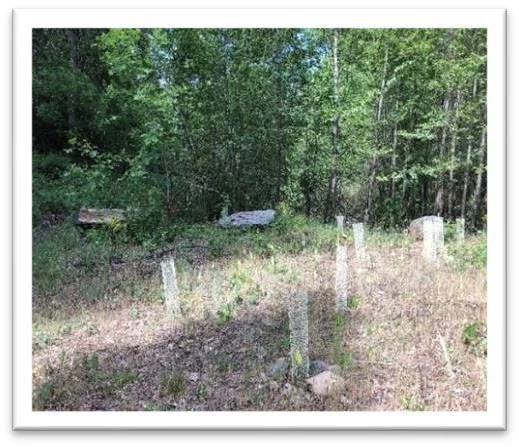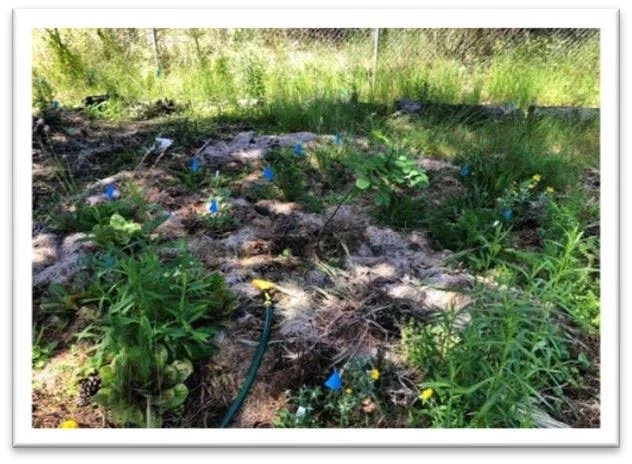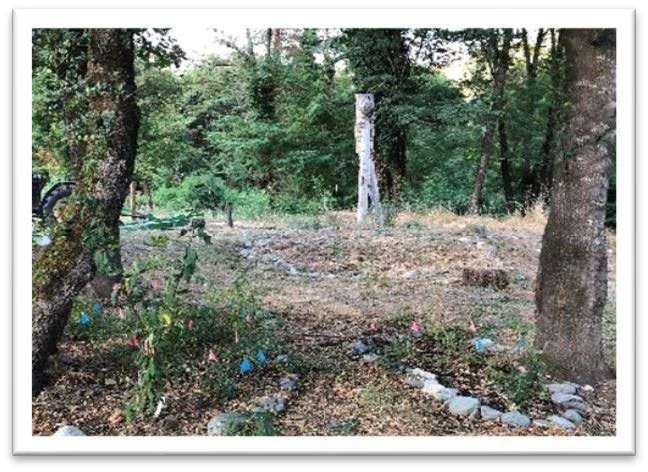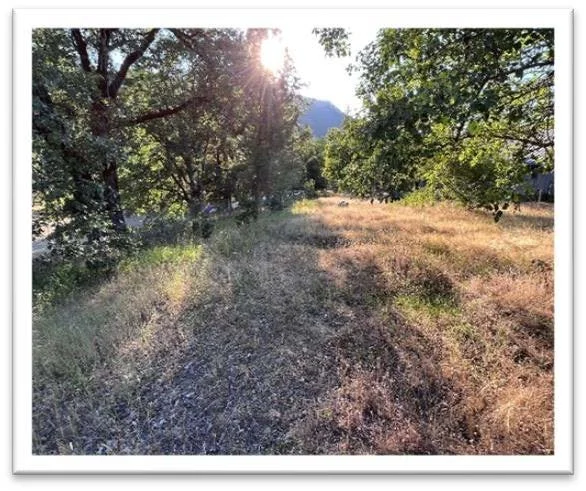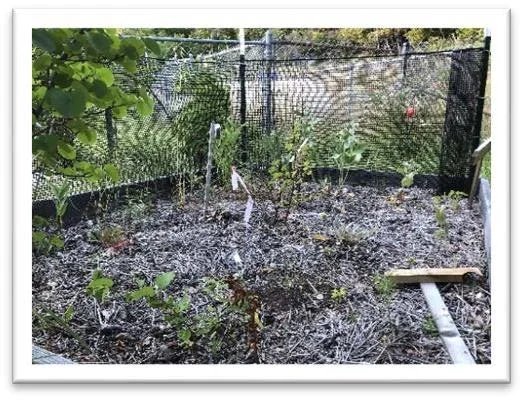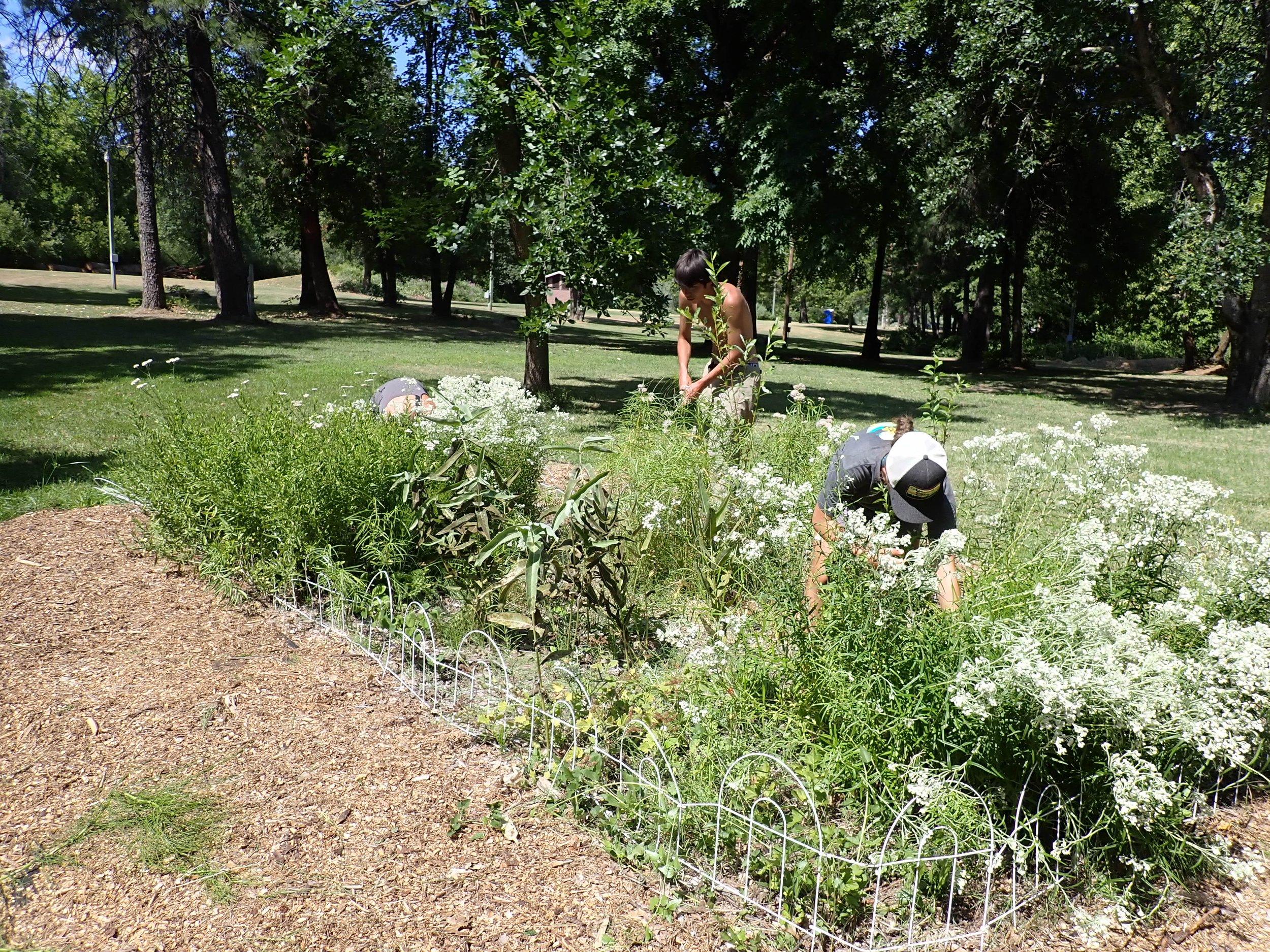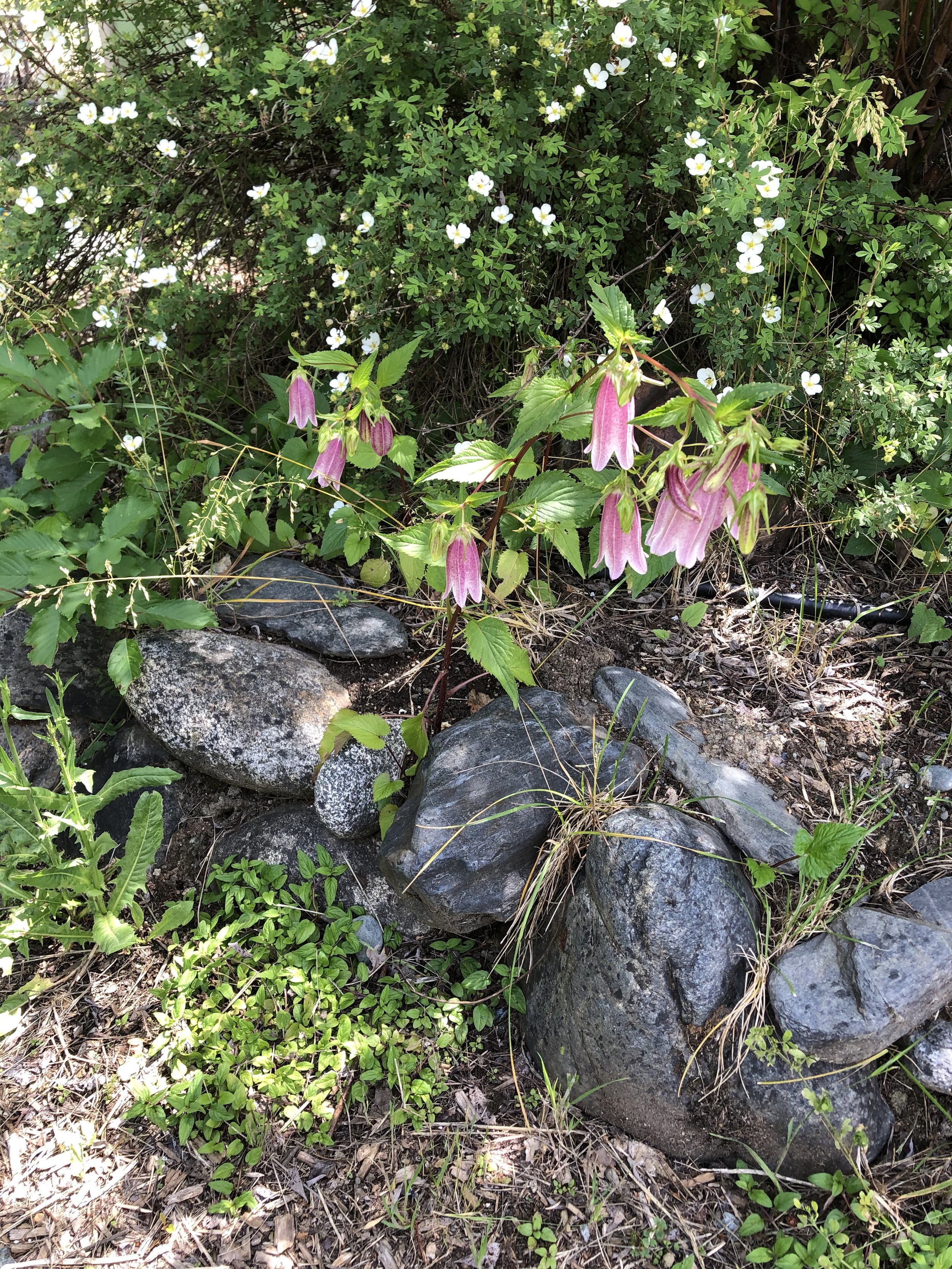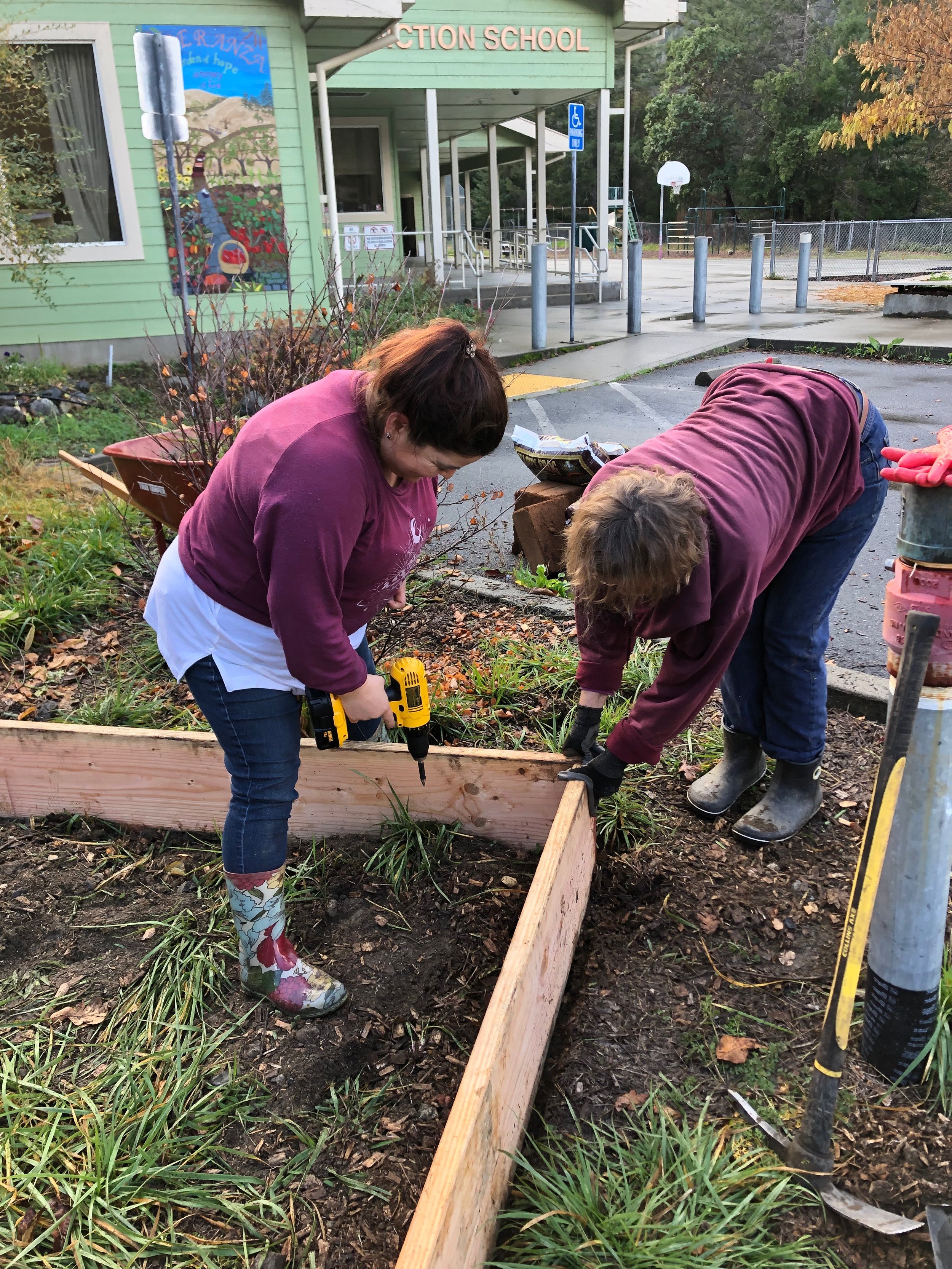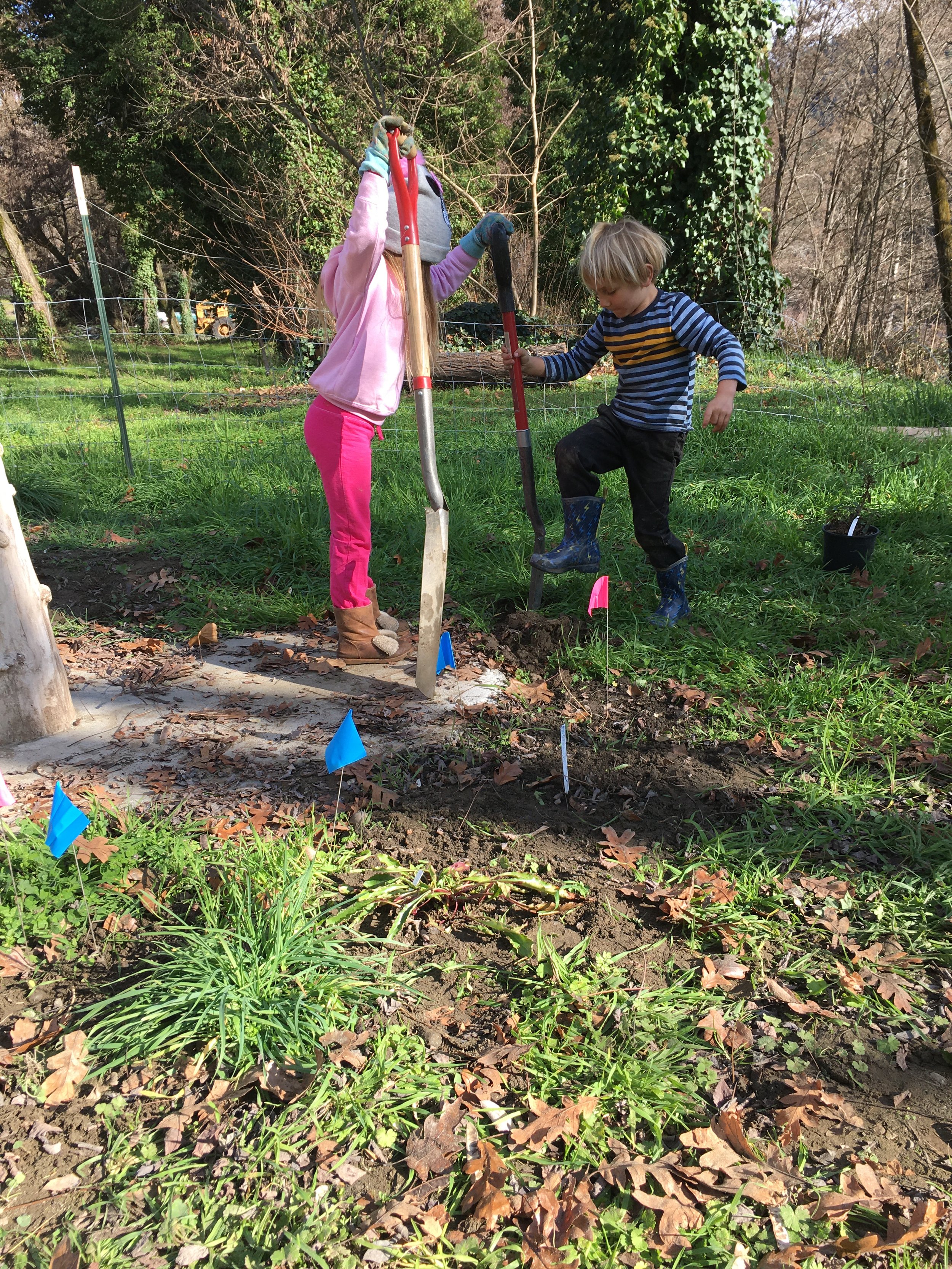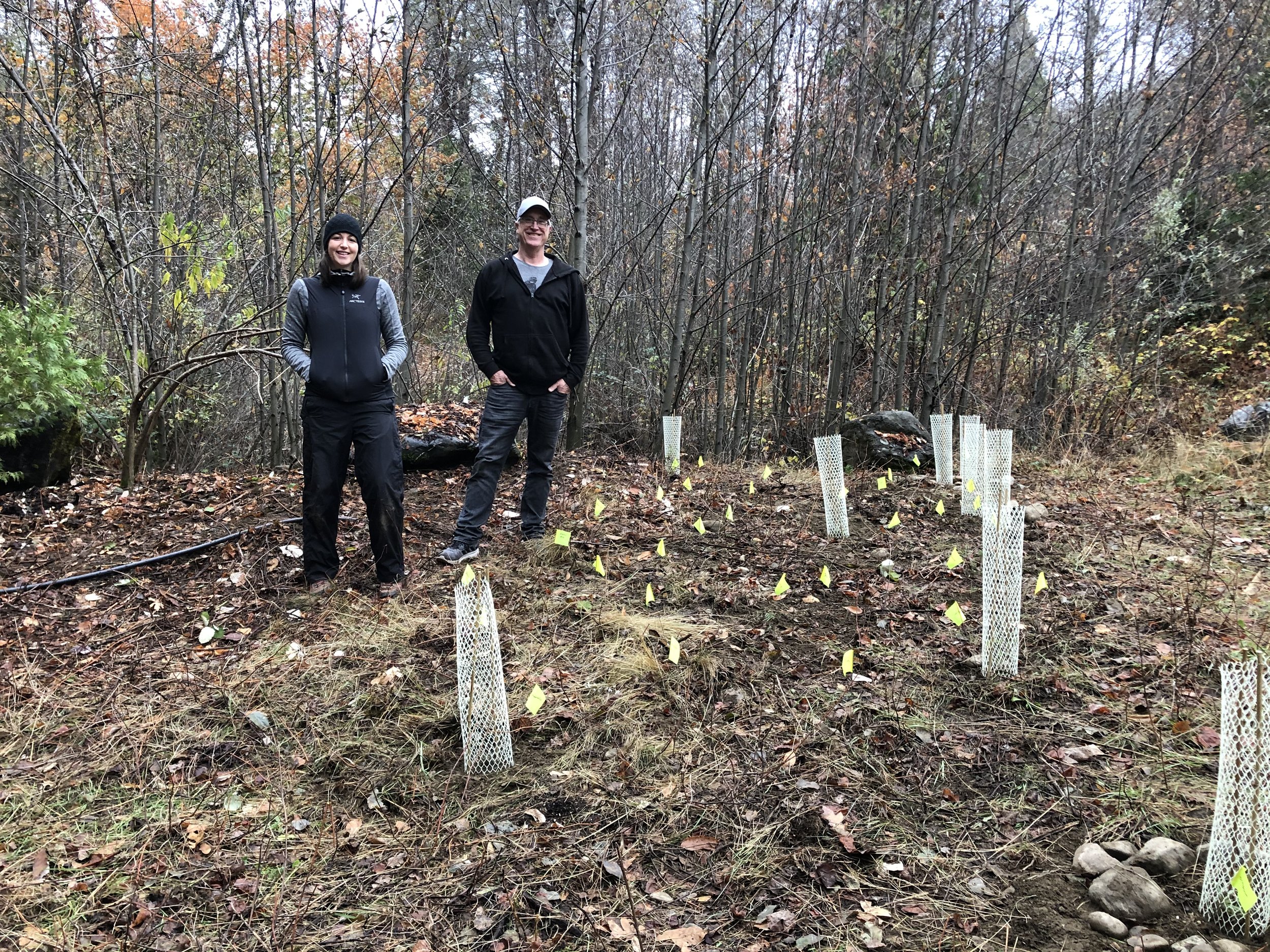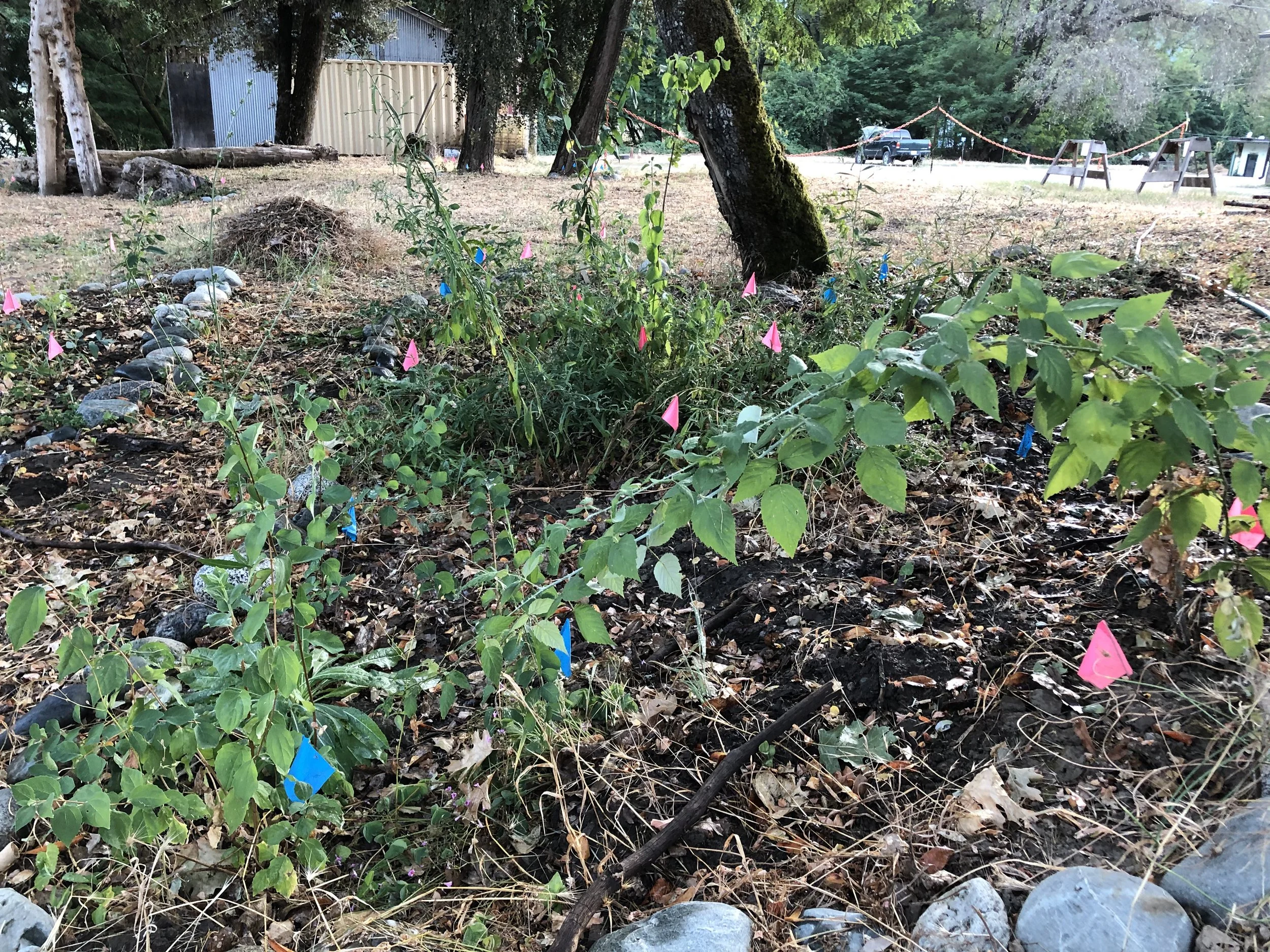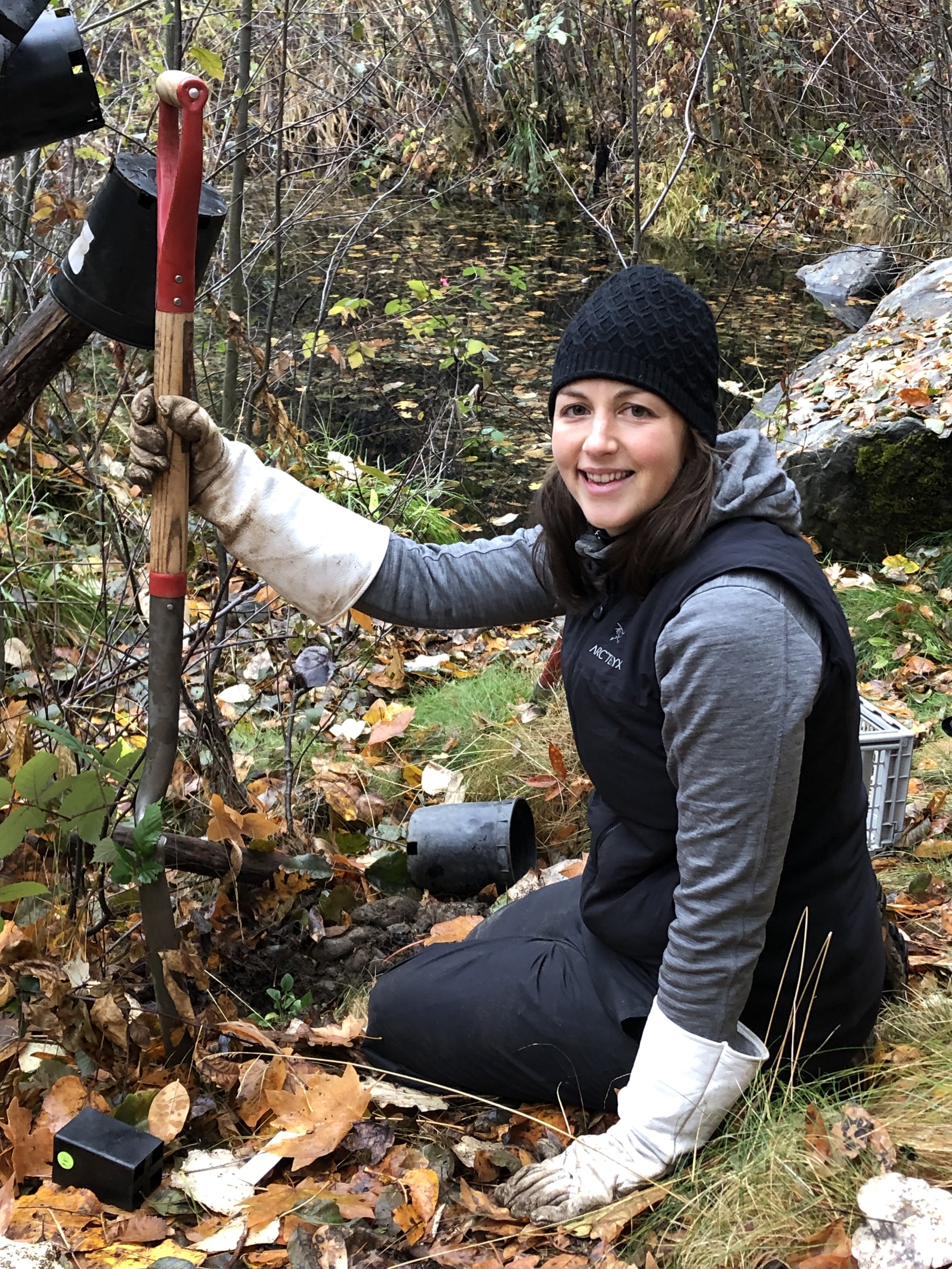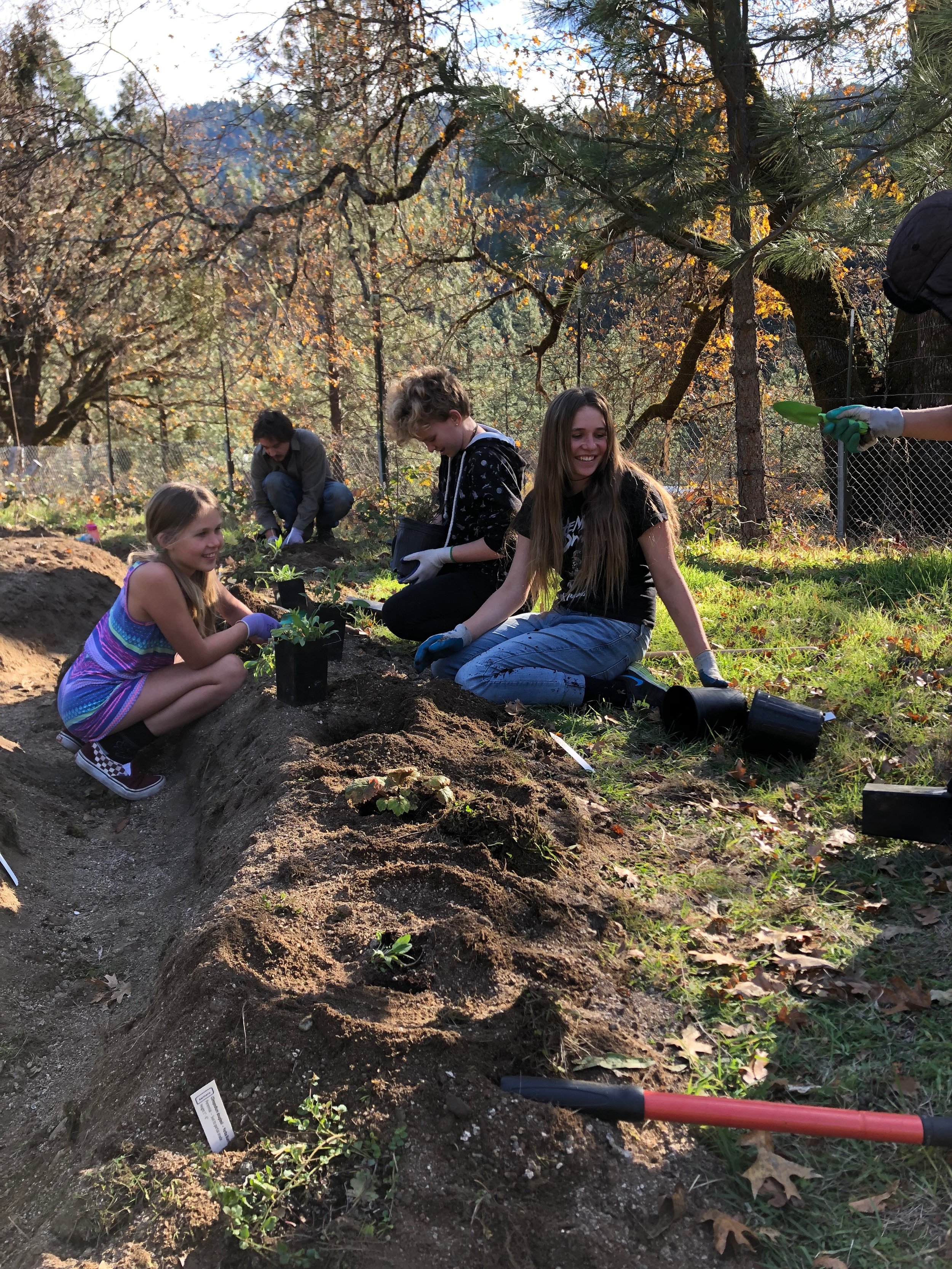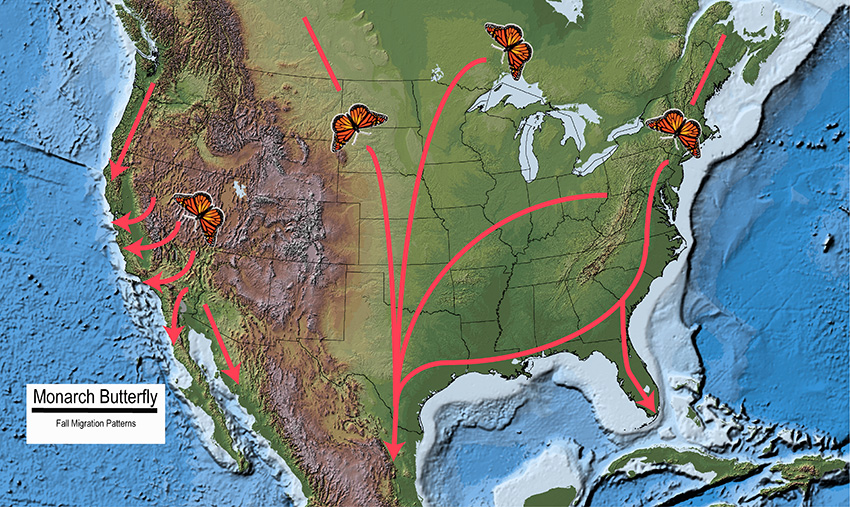Monarch Butterfly Waystations in the Mid Klamath
Happy Camp River Park Site Spring 2023
In 2019, MKWC received funding from the US Fish & Wildlife Service to build monarch butterfly waystations, patches of habitat that provide resources necessary for monarchs (and other pollinators) to reproduce and sustain their migration. Over the last 4 years, MKWC has planted, monitored, and maintained waystations at six locations along riparian areas from Seiad Valley to Orleans, CA. The goals of this habitat enhancement project are to:
Create food and reproduction sources for declining monarchs as they migrate across the Western United States to the California Coast.
Increase critical milkweed and pollinator plant sources in the Middle Klamath, thereby aiding monarch migration and pollinator succession.
Engage local communities and create awareness on the current state of the monarch, and pollinators in general, in order to preserve, protect, and increase population vitality.
Waystations were placed at an off-channel pond site in Seiad Valley, the Happy Camp River Park in Happy Camp, Junction Elementary in Somes Bar, Forks of Salmon Elementary in Forks of Salmon, Orleans Elementary, and the Panamnik Building in Orleans. Over the life of the grant we planted 356 native pollinator plants and 279 of both showy and narrowleaf milkweeds, 106 of the pollinator plants were donated by the MKWC plants program. 35 staff members, and over 100 children from all four school locations, participated in one or more of 44 days and 361 hours of gardening, community science and monarch education and awareness, as well as garden maintenance.
Happy Camp River Park Spring 2021
Happy Camp River Park Summer 2023
Happy Camp River Park: This planting was done in the spring of 2021, we placed a 10ft x 20ft bed at the River Park in Happy Camp, CA. We added 20 milkweeds and 40 native pollinator plants and covered the bed with weed cloth and wood chips. The garden is supported by the Happy Camp Community Services District and Happy Camp Elementary School (HCES). MKWC organized a volunteer work day on March 4, 2022 to weed the bed and spread both showy and narrowleaf milkweed seeds. Roughly 25% of our milkweeds returned from the initial planting. MKWC organized a second volunteer work day on May 5, 2023 with students from HCES, to weed the beds and provide educational activities, and MKWC stewardship interns contributed with a workday on July 19. Going forward, students from HCES will be able to take field trips to the garden in the spring and fall to help with maintenance and engage in pollinator curriculum. Overall this site is doing extremely well, we’ve had some encroachment by weeds, but the garden has plenty of water and has continued to thrive. The wetland characteristics here have allowed this site to not be adversely affected by recent drought conditions. The showy milkweeds have done well, as have all the pollinator plants. We’ve seen many plants survive here that have not survived at other locations such as: checker-lily, bleeding heart, and columbine. Consistent water and continued care by the Happy Camp Community Services District and Happy Camp Elementary School have all contributed to this garden’s success. We look forward to seeing it in full bloom again this spring.
Off-Channel Pond Fall 2020
Off-Channel Pond Fall 2023
Off-Channel Pond, Seiad, CA: Construction of this station took place in the fall of 2020 at another USFWS project site, an off-channel pond constructed for Coho enhancement. We surrounded the pond with 24 milkweeds and 24 native pollinator plants, additional pollinator plants, including mock orange were preexisting. This site is susceptible to pests and deer and we added plant tubing for protection. Plantings were placed on both the east and west sides of the pond. Sunlight is more prevalent on the west side, necessitating it as a priority, this side was also home to all the milkweed plants. We anticipated water may be an issue as existing irrigation was inoperable. Watering and care during the 2021 summer were challenging due to wildfire evacuations, drought, and COVID. By the summer of 2022, we’d had an approximately 50% loss of pollinator plants and a nearly complete loss of milkweeds.
We purchased 25 replacement native pollinator plants and 25 locally-grown native milkweeds, and planted them in the fall of 2023. Water, for the milkweeds in particular, has been less than optimal, therefore we’d modified the placement of the milkweeds slightly this time to better take advantage of the proximity to the water table. We hope this will allow them to become better established and propagate. Plans for a new irrigation system are in the works.
Orleans Elementary Summer 2021
Orleans Elementary Waystation: We received approval from the Klamath-Trinity Joint Unified School District for this station in September of 2021. This site also includes a vegetable and herb garden, as well as an orchard. A greenhouse was erected on-site in February of 2021 and there was a garden workday with the students shortly thereafter and the kids started milkweeds from seed. The seedlings went in the ground in March, unfortunately none survived. We had also added forty mature milkweeds in November of 2021, however none of those plants survived either. The survival of the milkweeds was concerning, it's possible having the children put all the plants into the ground had something to do with viability, or the location is not optimal. In the fall of 2023 we added 25 more showy and narrowleaf milkweeds. We had them grown locally from seed and hope this will increase survival rates. Monarch and pollinator education and curriculum are ongoing and the site has an existing water system and drought is not an issue.
Panamnik Building Fall 2019
Panamnik Building Summer 2023
Panamnik Building Waystation: This station was begun as part of a MKWC planned volunteer workday in November 2019. Staff and volunteers planted 24 milkweeds and 95 native pollinator plants, many of which were donated, along the river in downtown Orleans. Milkweeds were planted to accentuate an onsite art installation by Brian Tripp. Three main areas were cultivated resulting in approximately 200 sq.ft. of milkweeds and pollinator plants. Watering continued throughout summer and dripline was purchased to be installed in the spring of 2021, however this site has been well maintained by MKWC summer youth interns and the dripline has not been needed. It will be utilized at another waystation site.
We’ve had approximately an 80% survival rate at this site. We had a volunteer workday for this station on Valentine’s Day 2022 where we spread showy milkweed seed and weeded the garden. We added straw mulch and wood chips in the summer for water retention. We’ve purchased additional showy milkweed seed and MKWC staff planted them in the spring of 2023. As of last summer, we had achieved approximately a 25% survival of the narrowleaf milkweeds, they are establishing themselves, and other pollinator plants are doing exceptionally well - especially the aster and Oregon sunshine. A portion of locally-grown showy and narrowleaf milkweeds were planted in the early winter of 2023. MKWC stewardship interns, along with staff, have done a great job maintaining the garden and many events are held in this space in the summer months. We are encouraged that, as more events are held here, the opportunity for spreading awareness and promoting the cause will increase. We will continue to monitor and maintain this site going forward.
Forks of Salmon Elementary Fall 2019
Forks of Salmon Elementary Summer 2023
Forks of Salmon Elementary: Construction of this station was in collaboration with the Salmon River Restoration Council. In November of 2019, SRRC staff prepped and constructed the raised garden bed, MKWC purchased the plants and, with the help of the teachers and students, planted 24 milkweeds and 48 native pollinator plants, many of which were donated. This site has pre-existing fencing to keep pests out, however, water was a challenge, one we would not be able to mitigate. In the wake of the COVID pandemic, staffing was limited and the school was closed for much of the first year of implementation. The entire water system is on a generator pump and was only operational during school hours, and care and irrigation were sporadic. By the end of the summer of 2021, we estimated plant loss to be approximately 85%.
In September 2021, forty replacement plants and milkweed seeds were purchased and students and staff that had recently returned to school planted them in early November. It was around this time that the school was facing closure due to decreased enrollment, and unfortunately the school closed in June of 2022. The school has not reopened, and without the school being operational we have little opportunity to revive the garden. We visited the site in June of 2023 and it appears very little has survived, approximately 5%. If the school reopens, we will initiate communications to restore the station at this site.
Junction Elementary Spring 2020- before COVID closure
Junction Elementary Summer 2023
Junction Elementary: This station was completed in November of 2019. We constructed a planter box to better contain the milkweeds. 24 milkweeds, 12 of each the showy and narrowleaf went into the box and we incorporated 49 native pollinator plants into existing landscaping. Six youth from Junction Elementary participated in the planting and were given a presentation about waystations and their importance in the lifecycle of the Monarch Butterfly. In the 2020 school year care of the garden was minimal due to school closures due to COVID. We’d also had trouble with dogs digging the plants up. We added structural protection but estimated a 40-50% loss of the milkweeds. Loss of other pollinator plants was minimal.
Staff and students remained on site throughout the 2021 school year and water and care was given by both, the students, and our own community stewardship coordinator. We added 20 additional milkweeds in the fall. Irrigation has been purchased for this site to be added at a later date. As of 2022, we had approximately a 50% survival for the milkweeds and 80% survival for all other pollinator plants. The survival rates and perennial showy milkweeds are encouraging. Though they are present and established, due to drought conditions the milkweeds are not as abundant as we’d like. Water has been inconsistent for this site, it is drawn from an uphill stream and in the summer months it gets very low, this is exacerbated by recent summer drought conditions. 25 of the locally sourced showy and narrowleaf milkweeds were added to this site just this spring.
During this project we experienced many successes, like involving youth and community members in pollinator projects, observing an increase in pollinators at sites, and fostering new collaborations. We also faced challenges due to COVID-related closures, drought, and wildfires. We look forward to building on our lessons learned these last 4 years while we continue to steward these monarch waystations in the Mid Klamath!
Monarch Butterfly Fall Migration Pattern




